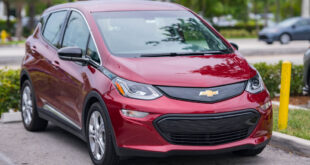Electric Cars vs Hybrids: Which One is the Better Choice? As the world shifts towards greener and more sustainable transportation, the debate between electric cars and hybrid vehicles becomes increasingly relevant. Both options aim to reduce carbon emissions and reliance on fossil fuels, but they cater to different needs and preferences. This article dives deep into the pros, cons, and key differences of electric cars and hybrids, helping you decide which one is right for you.
What Are Electric Cars and Hybrids?
Electric Cars (EVs)
Electric cars run entirely on electricity, using a rechargeable battery to power an electric motor. They produce zero tailpipe emissions and rely on charging stations for energy.
Hybrid Cars (HEVs)
Hybrids combine a traditional internal combustion engine (ICE) with an electric motor. The electric motor supplements the engine, improving fuel efficiency and reducing emissions. Some hybrids, known as plug-in hybrids (PHEVs), can also be charged externally.
Advantages of Electric Cars
- Zero Emissions
EVs are environmentally friendly, producing no tailpipe emissions. This makes them ideal for urban areas aiming to reduce air pollution. - Lower Operating Costs
Charging an EV is often cheaper than refueling a gas-powered car. Additionally, EVs require less maintenance since they have fewer moving parts. - Government Incentives
Many governments offer tax credits, rebates, and other incentives to encourage EV adoption. - Silent Operation
EVs are virtually noiseless, offering a quieter and more comfortable driving experience. - Innovation and Features
Most EVs come with advanced technologies, such as autonomous driving features and enhanced connectivity.
Disadvantages of Electric Cars
- Limited Range
While EV range is improving, it may not suffice for long road trips without frequent recharging. - Charging Infrastructure
Inadequate charging stations can be a challenge, especially in rural areas. - Higher Upfront Cost
EVs typically cost more than traditional and hybrid vehicles, although incentives can offset this. - Battery Degradation
Over time, EV batteries lose their capacity, reducing the car’s range. - Charging Time
Recharging an EV takes longer than refueling a gas tank, which might be inconvenient for some.
Advantages of Hybrid Cars
- Better Fuel Efficiency
Hybrids consume less fuel by combining electric power with a gasoline engine. - Extended Range
With a gas engine backup, hybrids offer longer driving ranges compared to EVs. - Lower Upfront Costs
Hybrids are generally more affordable than electric cars. - Familiar Technology
The presence of a gas engine makes hybrids feel more like traditional cars, easing the transition for drivers. - No Charging Worries
Regular hybrids don’t require external charging, relying on regenerative braking to recharge the battery.
Disadvantages of Hybrid Cars
- Complex Systems
The combination of two power sources increases complexity and potential maintenance costs. - Lower Efficiency at High Speeds
Hybrids are less efficient on highways compared to city driving. - Still Emit Carbon
Although hybrids produce less pollution than traditional cars, they still emit greenhouse gases. - Battery Dependency
While the engine helps recharge the battery, heavy reliance on regenerative braking can limit efficiency. - Limited Electric Range in PHEVs
Plug-in hybrids have a smaller electric-only range compared to full EVs.
Key Differences Between Electric Cars and Hybrids
| Feature | Electric Cars | Hybrid Cars |
|---|---|---|
| Power Source | Fully electric | Gasoline + Electric |
| Emissions | Zero emissions | Reduced emissions |
| Refueling | Charging stations | Gas stations |
| Cost | Higher upfront cost | Lower upfront cost |
| Range | Limited | Extended |
Tips for Choosing Between Electric Cars and Hybrids
- Assess your driving habits, including daily mileage.
- Consider the availability of charging stations in your area.
- Factor in your budget, including upfront costs and incentives.
- Look into government rebates for EVs or hybrids.
- Determine your environmental priorities.
- Research maintenance costs for both types of vehicles.
- Compare warranties on batteries and other components.
- Test-drive both options to see which suits you better.
- Plan for future energy and fuel prices.
- Consider the resale value of each option.
FAQs
- What is the main difference between EVs and hybrids?
EVs are fully electric, while hybrids combine a gasoline engine with an electric motor. - Are hybrids more environmentally friendly than gas cars?
Yes, hybrids emit less CO2 than traditional cars but are not as eco-friendly as EVs. - Do hybrids need charging?
Regular hybrids do not, but plug-in hybrids can be charged externally. - How long do EV batteries last?
Most EV batteries last 8-15 years, depending on usage and conditions. - Are EVs cheaper to maintain than hybrids?
Yes, EVs have fewer moving parts and require less maintenance. - Can hybrids run on electricity alone?
Some plug-in hybrids can, but regular hybrids rely on both power sources. - What is regenerative braking?
A system that converts kinetic energy into electrical energy to recharge the battery. - Are there any tax benefits for hybrids?
Some countries offer incentives for hybrids, but EVs often receive greater benefits. - Which is better for long trips, an EV or a hybrid?
Hybrids are better suited for long trips due to their extended range. - How do EVs impact electricity bills?
Charging EVs increases electricity usage, but the cost is often lower than gasoline.
Conclusion
Choosing between an electric car and a hybrid vehicle ultimately depends on your personal needs and preferences. Electric cars are ideal for those seeking zero emissions and lower maintenance costs, especially if charging infrastructure is readily available. On the other hand, hybrids are a great middle-ground, offering improved fuel efficiency without the range anxiety of EVs.
Whether you prioritize sustainability, cost-efficiency, or convenience, understanding the differences between these two types of vehicles will help you make an informed decision. Embrace the future of mobility with the choice that aligns with your lifestyle and values.
 oto car insurance used car repair
oto car insurance used car repair
